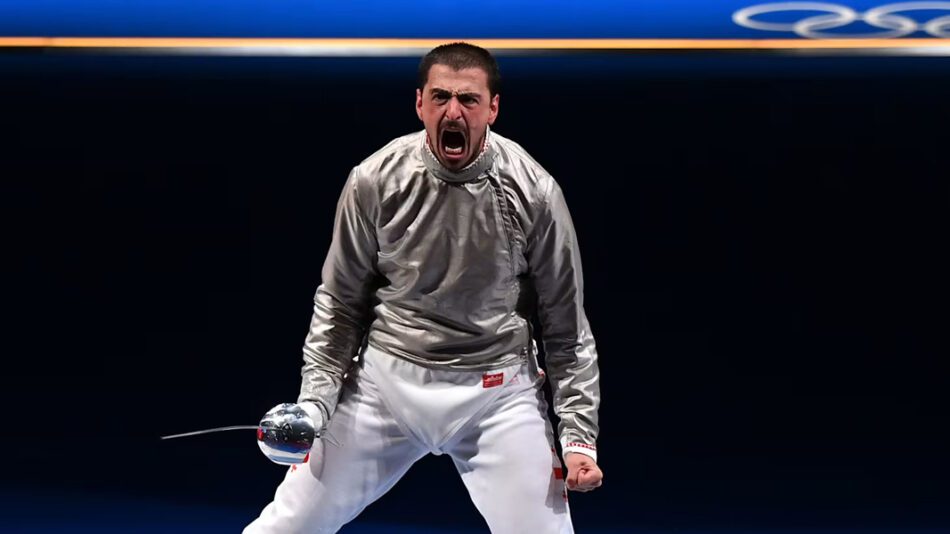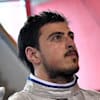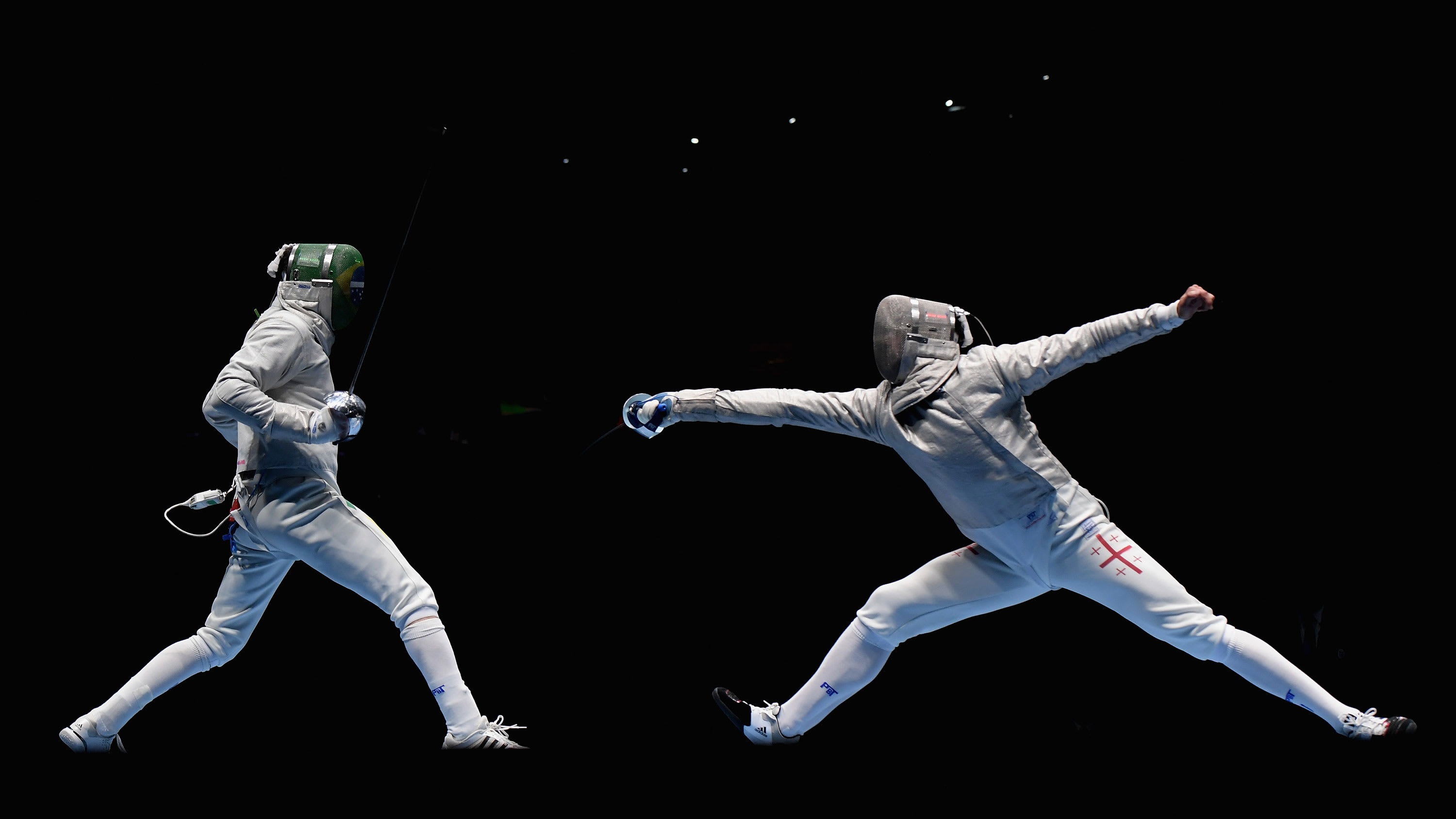Sandro Bazadze: Aiming to make history for fencing in Georgia

18 July 2024 – Ahead of the Olympic Games Paris 2024, Georgian fencer Sandro Bazadze explains how an Olympic Solidarity scholarship has helped him to follow in his family’s footsteps on his journey to the top of the fencing world.
As one of the top-ranked sabre athletes over the past few years, Sandro Bazadze has been a dominant force in the fencing world and will be one of the athletes to beat at the Olympic Games Paris 2024.
“I’m happy to go to the Olympic Games,” Bazadze says. “My career is going well, I’m proud of myself at this moment. I hope I will finish the season as number one because it will mean I won at Paris 2024.”
Despite strong results in recent years, including gold medals at the 2022 and 2023 European Fencing Championships and silver at the 2023 World Championships, Bazadze is still striving for success on the Olympic stage. In his two appearances at the Games to date, he is yet to win a medal, having finished 13th at Rio 2016 and moving up to an agonising fourth place at Tokyo 2020.
“It was really difficult because I think I was ready to win medals,” he explains. “But I grew up a lot after Tokyo. It improved me mentally and I became much stronger. The last three years, I’ve been around the top of the rankings and my seasons were some of the best. Now, I need to win a medal because I have to show myself that I deserve it.
“I can’t wait because I’ve worked hard for this for years. I just want to go, feel the atmosphere and show the world who I really am. And I hope everything will finish well for me, my family and my country.”

Sandro Bazadze, Olympian, fencing, Georgia
Reaching new heights with Olympic Solidarity support
Fencing is a hugely popular sport in Georgia, where Bazadze is one of the biggest sports stars and strongest Olympic medal hopes. At Paris 2024, he is aiming to become his country’s first-ever Olympic fencing medallist. But even with the sport’s popularity, he has faced the same struggles as many athletes in other sports.
The support from his Olympic Solidarity scholarship has proved invaluable in his career and has helped him in his endeavour to reach the summit of fencing.
“In sport, there are a lot of things you need a little help with, including paying for physios, personal trainers and the gym. Olympic Solidarity helped me organise and finance these,” he says.
Boosted by Olympic Solidarity’s support, and in order to test himself at the highest level, Bazadze made the difficult decision to leave Georgia and move to France.
“I decided to go to France after Rio because, in Georgia, many young fencers stop practising the sport,” he explains. “As a result, the level was a little bit low, so it was not a good place for me to train. You need the people around you to be at the same level, and so me and my father, who was my coach, decided to move to France because the level of fencing is so high. I started working with a really good coach in Christian Bauer and quickly improved my results.”
As a result, the upcoming Olympic Games will have something of a home feel for Bazadze, who has been based in Orléans, just two hours from Paris, since 2018 and is looking forward to competing in front of the French fans.
“I’ve been here almost six years; people know about me, they support me,” he reveals. “I think it will help me and it will be a good atmosphere for me in Paris.”

Inspired by and learning from his family
At 13 years old, Bazadze was introduced to the world of fencing by someone who knew the sport very well – his father, Merab, who previously served as President of the Georgian Fencing Federation. Though there was never pressure from his family to get involved in the sport, Bazadze was inspired when he attended the Fencing World Championships to watch his older brother, Beka, represent Georgia.
Despite the fact that Bazadze took up the sport relatively late, the support and the experience of his family meant that he progressed quickly, and by 19 he had already won the European Junior Championship.
“We did training after we went home all the time. We would speak only about fencing, so it was easier for me,” he admits. “I’m really thankful for them because if it was not for my family, I don’t think that I would have become who I am right now.”
Over 1,300 athletes supported through Olympic Solidarity
A total of 1,331 athletes from 159 National Olympic Committees (NOCs), covering 26 sports, received Olympic Solidarity scholarships for Paris 2024. Olympic Solidarity aims to ensure that talented athletes of all backgrounds have an equal chance of reaching and succeeding in the Olympic arena by providing crucial funding to help finance their Olympic dreams. With a particular focus on athletes and NOCs most in need, individual Olympic Solidarity scholarships provide athletes with financial support through monthly grants that contribute to their preparation and qualification for the Games, whether in their home country or at a high-level training centre elsewhere.





